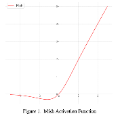Implicit Neural Representations (INRs) have revolutionized signal representation by leveraging neural networks to provide continuous and smooth representations of complex data. However, existing INRs face limitations in capturing fine-grained details, handling noise, and adapting to diverse signal types. To address these challenges, we introduce INCODE, a novel approach that enhances the control of the sinusoidal-based activation function in INRs using deep prior knowledge. INCODE comprises a harmonizer network and a composer network, where the harmonizer network dynamically adjusts key parameters of the activation function. Through a task-specific pre-trained model, INCODE adapts the task-specific parameters to optimize the representation process. Our approach not only excels in representation, but also extends its prowess to tackle complex tasks such as audio, image, and 3D shape reconstructions, as well as intricate challenges such as neural radiance fields (NeRFs), and inverse problems, including denoising, super-resolution, inpainting, and CT reconstruction. Through comprehensive experiments, INCODE demonstrates its superiority in terms of robustness, accuracy, quality, and convergence rate, broadening the scope of signal representation. Please visit the project's website for details on the proposed method and access to the code.
翻译:暂无翻译





